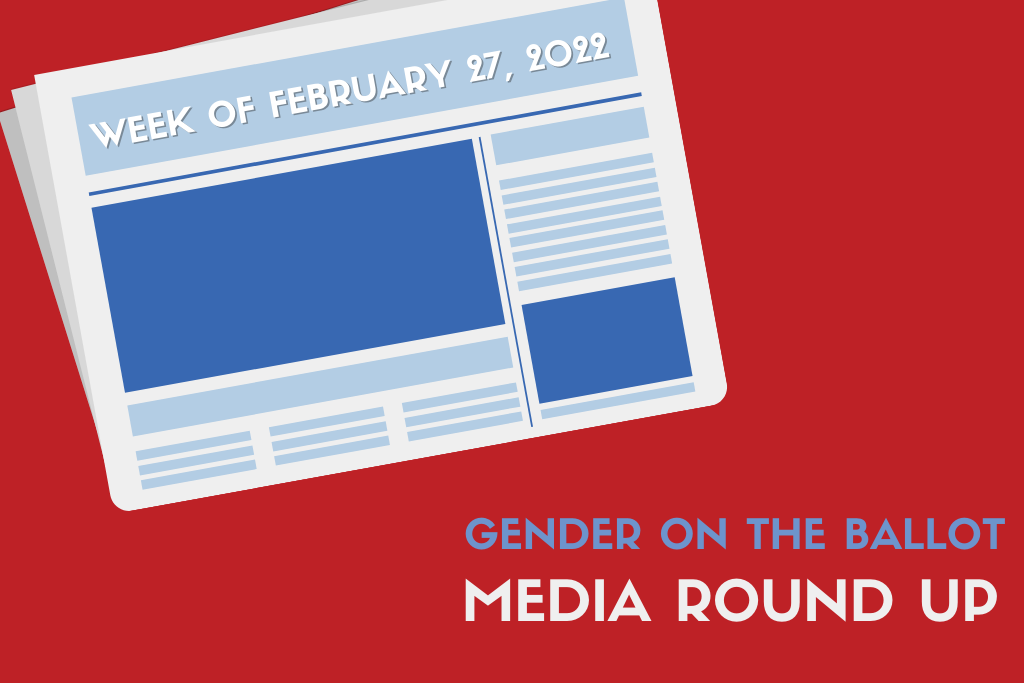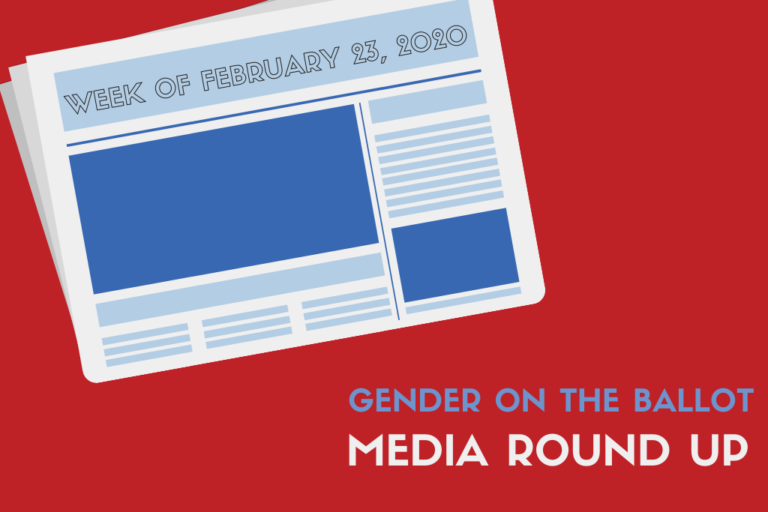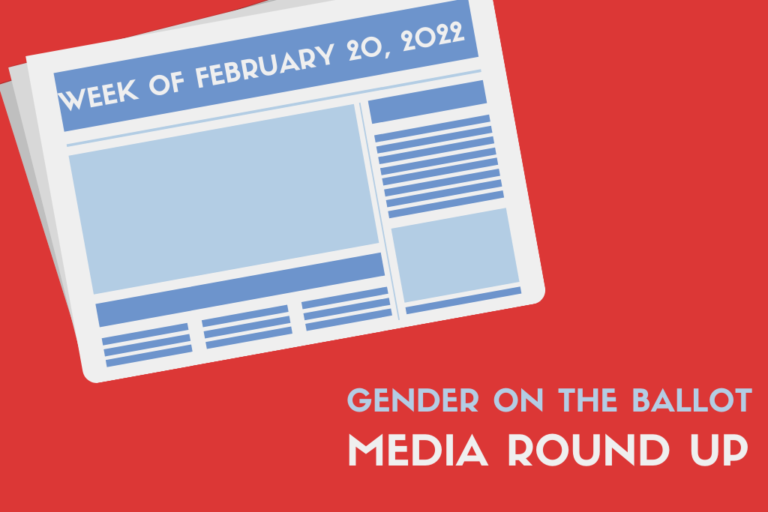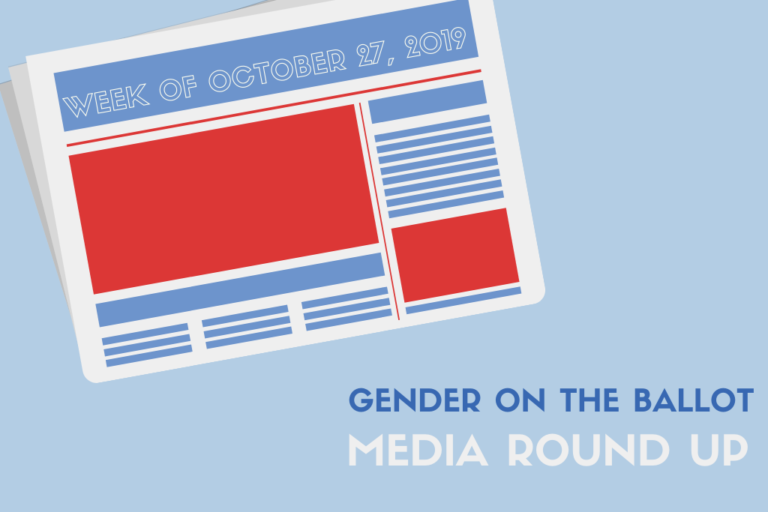Happy Friday! Welcome to our Media Round Up. Each week we’re collecting and sharing our…
Media Round-Up: Week of February 27th

Happy Friday! Welcome to our Media Round Up. Each week we’re collecting and sharing our favorite gender + politics stories. Here’s what caught our eye this week:
For first time in history, two women sat behind president at State of the Union
Jordan Mendoza, USA Today
For the first time in history, two women sat behind the president during the State of the Union Address this week. Vice President Kamala Harris and Speaker of the House Nancy Pelosi first made history last year when they sat behind the president during a joint session in the House Chamber.
During this year’s address, President Joe Biden said, “Madam Speaker, Madam Vice President, our First Lady and Second Gentleman,” and last year said, “No president has ever said those words from this podium and it’s about time.”
Read the full story here.
What Are the Four Waves of Feminism?
Sarah Pruitt, History Channel
Beginning in the mid-19th century, there have been various waves of feminism calling for the economic, political, and cultural equality for women. The concept of “waves of feminism” surfaced in the late 1960s due to the differences in approaches and goals in the multiple feminist movements over time. Some experts argue that the term “waves” oversimplifies the sub-groups of feminist movements throughout history, while others suggest that the term signifies the overlapping sub-groups working towards their respective goals.
Read the full story here.
How women claimed their place in America’s history books
Erin Blakemore, National Geographic
Often times, early editions of history books excluded women, even though women have always been an integral part of history. Many early historians saw history through the lens of the “great mans theory,” and on the rare occasions that women were included in the texts, it was only in reference to their roles as queens. Things began to change in the 20th century with the establishment of women’s history as an academic discipline. This eventually led to March being recognized as Women’s History Month, a time to honor the contributions and impact women have made.
Read the full story here.
Autocracy and patriarchy are surging worldwide—but women are pushing back
Nora Delaney, Harvard Kennedy School
Autocracies are on the rise globally, posing a threat to gender equity and the rights of historically marginalized people. Harvard Kennedy School faculty members Erica Chenoweth and Zoe Marks have researched the interplay of gender, violence and resistance in order to understand the intrinsic relationship between the three.
“[G]ains by women, gender minorities, racial minorities, and other historically excluded groups are often contingent on systems becoming more just. It is antidemocratic to reverse these trends,” says researcher Zoe Marks.
Read the full story here.
Four women on the Supreme Court would bring historic, near gender parity for institution long dominated by White men
Robert Barnes, Washington Post
“When I’m sometimes asked ‘When will there be enough [women on the Supreme Court]?’ and I say ‘When there are nine,’ people are shocked. But there’d been nine men, and nobody’s ever raised a question about that.” – Ruth Bader Ginsburg
With President Joe Biden’s historic Supreme Court Nominee, Ketanji Brown Jackson, awaiting her confirmation hearings at the end of March, the country could be one justice closer to Ruth Bader Ginsburg’s wish.
Read the full story here.






